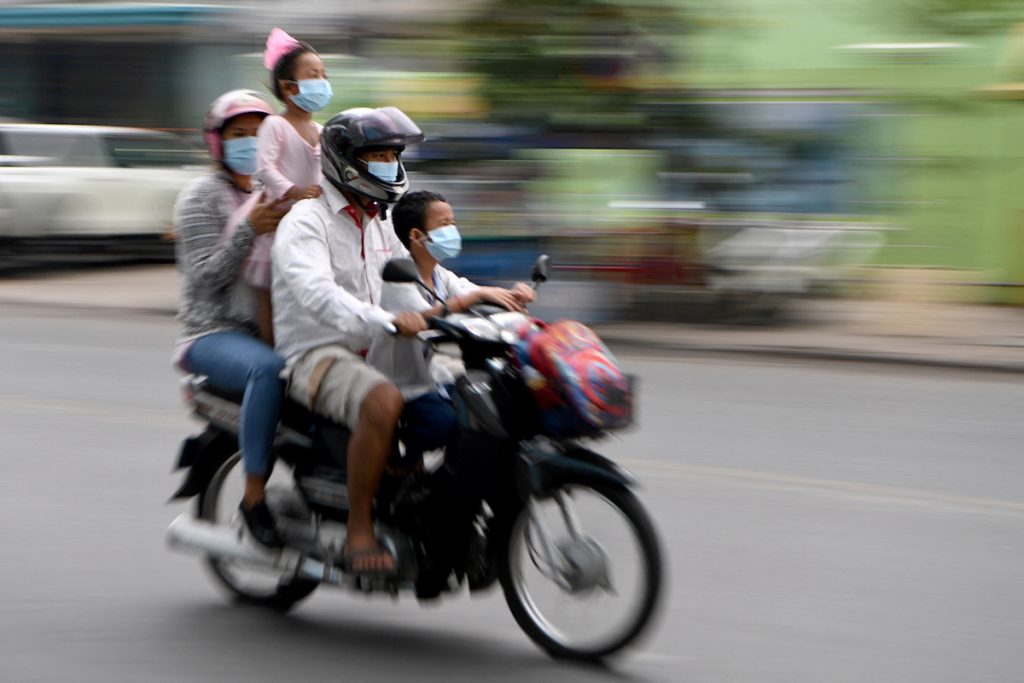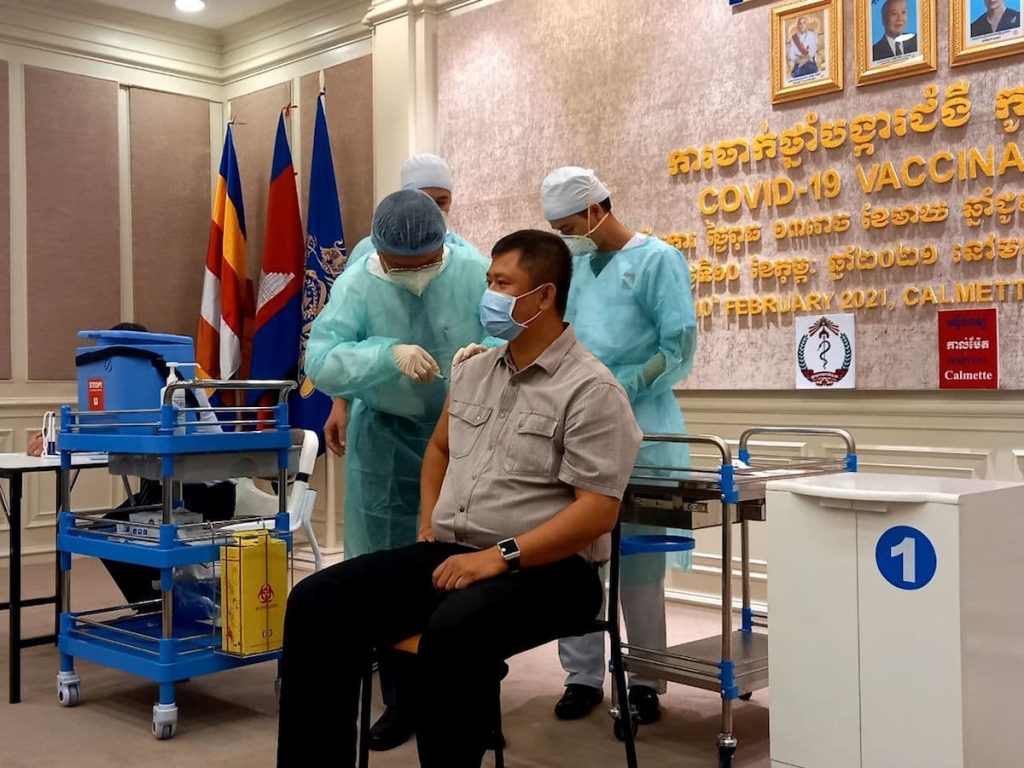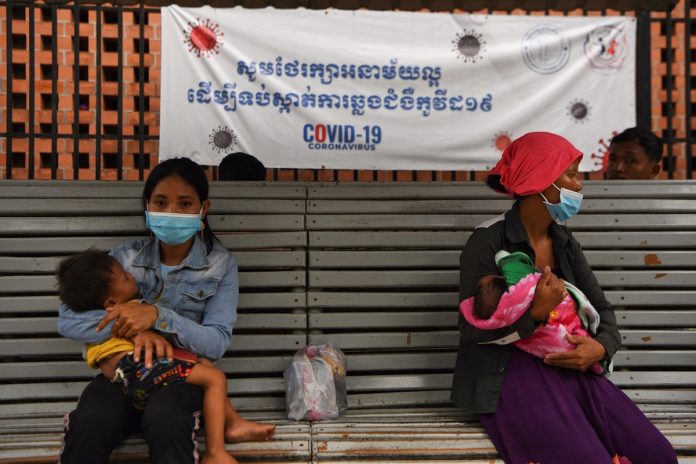Cambodia received its first batch of the COVID-19 Sinopharm vaccine from the People’s Republic of China on Feb. 7. The 600,000 vaccine doses, donated by Beijing to the Cambodian government, are now available for use but many locals say they’re wary of getting a shot.
Cambodia’s government announced Feb. 10 was the first open day for the country’s vaccination campaign in five different state hospitals, where the public will be able to access the vaccine depending on the hospital’s classification.
Calmette, Angduong and the Khmer Soviet friendship hospital have been allocated for government officials and civil servants, and the Ketomealea hospital has been designated for members of the military, whilst the Cambodian National Hospital for Children can be used by ordinary citizens.
Hun Manet and Hun Manith, the two oldest sons of Prime Minister Hun Sen, were among the first to get their vaccination on Feb. 10. “I’m very confident, because I trust Chinese science and technology. I call on all people to come to get their vaccination,” Hun Manet told journalists.
The Cambodian government has not yet set an exact schedule for which groups will be vaccinated at which times, nor have they published how exactly the vaccination program will be rolled out in the coming months. Instead, the government has asked people to volunteer to get the vaccine in the first instance.
However, many ordinary Cambodian citizens are debating whether or not to have the vaccine. With very little information to go on, in terms of the effectiveness or safety of the vaccine, many still have doubts and don’t know whether it can be trusted.
Many Cambodians interviewed by LiCAS.news reporters discussed their reluctance to get the Chinese vaccine.

Orn Pisak 34, a Phnom Penh resident, told LiCAS.news on Feb. 11 that he was glad to see the vaccine had arrived, but said he wouldn’t be going to get vaccinated.
“I’m not interested, and I don’t really need this vaccine as there isn’t a lot of infection in my community or the country as a whole,” he said. “I’m not worried and I’m confident that I can continue to protect myself as I’ve already been doing that.”
The total population of Cambodia is close to 16 million people, and according to the country’s health ministry, there have only been 478 local cases of COVID-19 with the majority of those infected having travelled to Cambodia from abroad.
Poy Sophear 32, a resident of Siem Reap, told LiCAS.news by phone on Feb. 10 that she wouldn’t trust a vaccine that has not been approved by the World Health Organization (WHO).
“It doesn’t mean that I don’t fear getting infected, but I’m even more afraid of the vaccine which has been donated by China, as it hasn’t been approved or recommended by the WHO,” she said.
“Many people I know feel the same way. The first outbreak of COVID-19 was reported in China, and now they have announced the vaccine that they have produced to prevent people from getting COVID-19, but I’m really not sure if getting that vaccine is the safe way to go” she said.

In relation to the China vaccine’s effectiveness, OR Vandin, a spokesperson from the Ministry of Health told journalists at the Calmette hospital on Feb. 10 during the opening of the vaccination campaign that: “Sinopharm has a high percentage rate of effectiveness, at 79.34 per cent; and that it is highly recommended for those aged between 18 to 59-years-old.”
However, the ministry also issued a Feb. 9 announcement saying that people who have health issues like fever, acute respiratory problems, allergies to different medicines or vaccines or those with angioedema, liver disease or diabetes, HIV and any type of cancer, along with pregnant women and breastfeeding mothers should not receive the vaccine.
Hun Sen had announced a week before the arrival of the vaccine that he would be the first person to receive it in Cambodia. However, because he is 68 years old, and over the recommended age limit, he ended up choosing not to be vaccinated. Cambodian Defense Minister, Tea Banh, did however choose to go ahead with receiving the vaccine, although he is eight years older than Hun Sen.
When asked by journalists if the government hadn’t already been aware of the age limitations on the Sinopharm vaccine, OR Vandin, the government spokesperson, said the instructions and criteria for vaccine use had come with its arrival. However, the Sinopharm Institute had already announced in November last year that the vaccine would only be effective for those within the 18 to 59 age groups.

The Cambodian government, via the Ministry of Economy and Finance’s permanent secretary of state Vongsey Vissoth, reported in late January that Cambodia expected to receive 20 million doses of the vaccine; of which 11 million doses would be donations from friendly nations and organization partners.
He explained that the first phase of 7 million doses from the WHO-aligned Covax program would be donated by the United Nations, with one million doses coming from Sinopharm, China.
Additionally, the Australian government would be providing a financial grant which would be equal to three million doses of the vaccine.
Hun Sen also asked India to donate some vaccines to Cambodia whilst the defense minister has asked Russia to donate some as well.
On top of that, the Cambodian government has likewise raised over US$ 57 million from local wealthy individuals along with ordinary Cambodian citizens to be used to purchase more vaccines.
At the vaccine venue of Calmette hospital, OR Vandin, the Ministry of Health spokesperson, added that the government is expecting that a further 400,000 doses of Sinopharm vaccine will arrive in the near future to fulfill the promise of 1 million doses donated by China.
Meanwhile, the LiCAS.news reporter who spoke to several street vendors to ask if they planned to go ahead with the vaccination, reported that the majority of them had said no.
One male street vendor, who asked to remain anonymous, discussed how he’d be waiting for other people to have the vaccine first before he would consider having it.
“I won’t be going to get vaccinated first. I want to wait and see if other people who receive the vaccine are having good results. If they are, then I might go,” he said.









